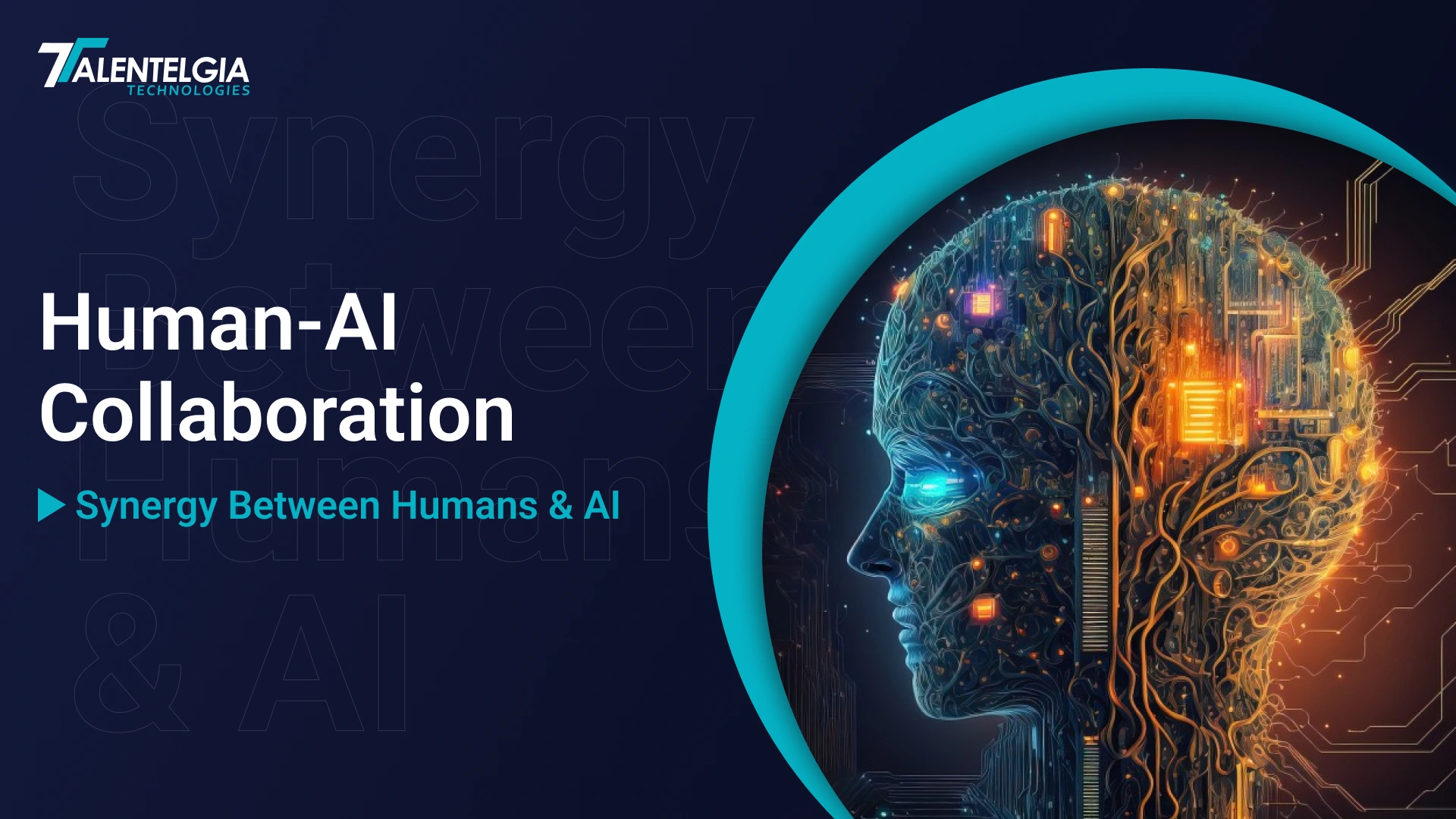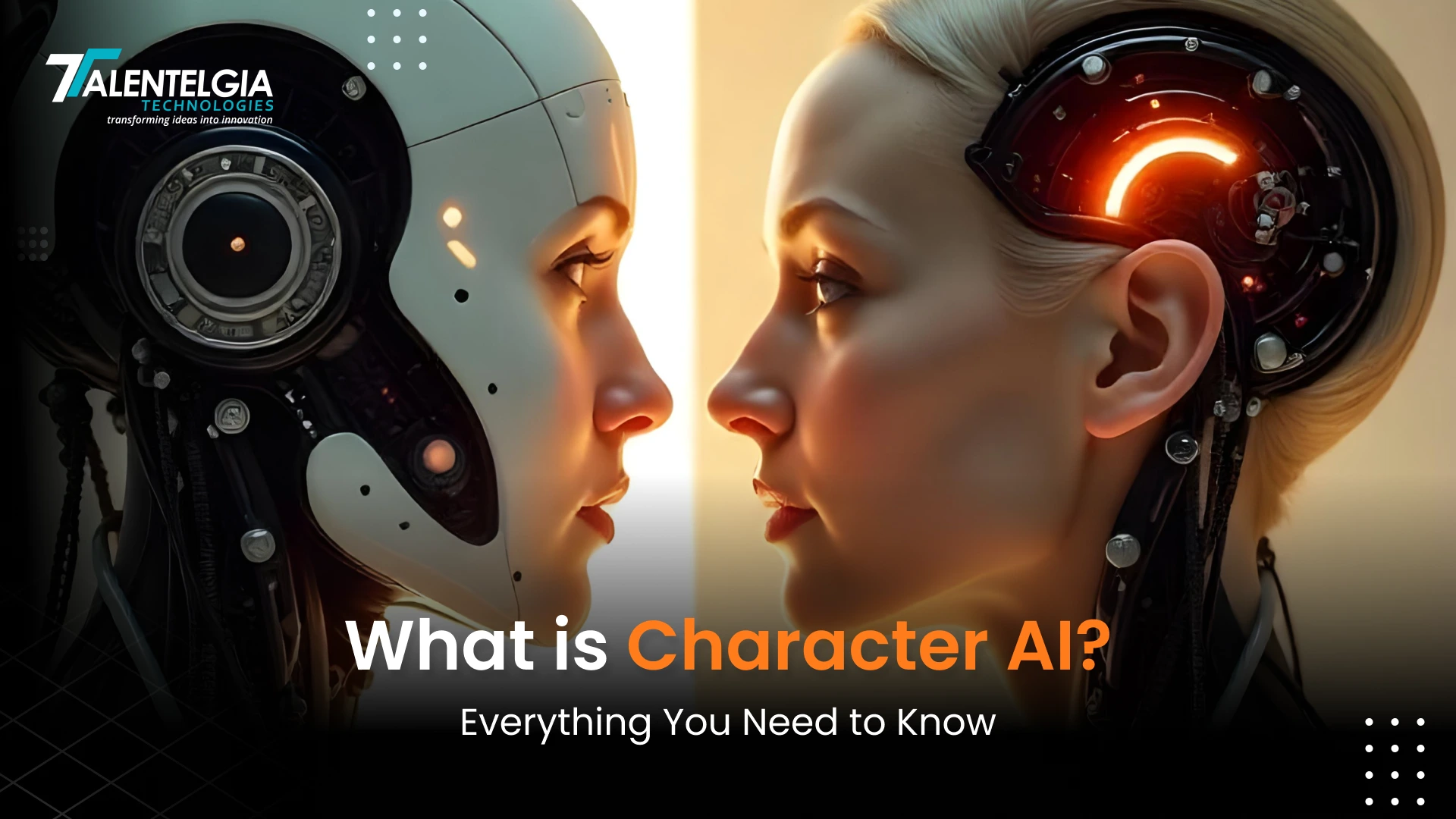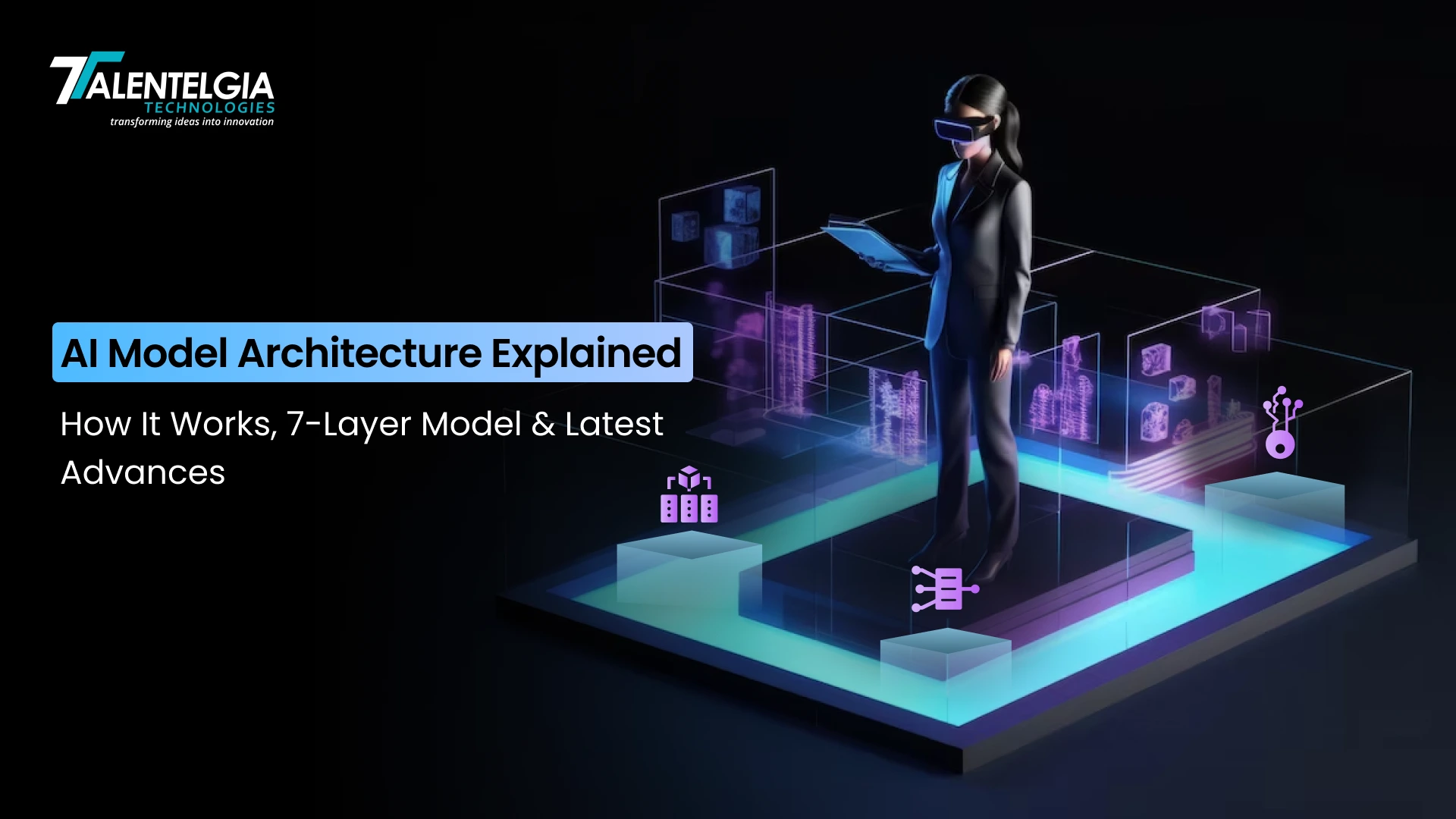Did you know? According to McKinsey’s annual research survey, “AI investment has more than doubled since 2017, with 50% to 60% in recent years.” Businesses are increasingly realising the importance of integrating AI into their existing work processes and making human-AI collaboration a reality.
But what does it mean?
Human-AI Collaboration is when humans and artificial intelligence work together to make tasks more efficient or develop new and creative products or services. It makes use of the best human qualities including creativity, instinct, empathy problem-solving, and the AI qualities of analyzing large data sets to enhance decision-making and workflow efficiency. This ultimately leads to long-term holistic business growth.
In this blog, we’ll understand the importance of human-AI collaboration for businesses, the drawbacks that come with this partnership, and the future predictions regarding the same.
Importance Of Human-AI Collaboration
AI already has the power to transform industries at all levels. From supply chain to finance, AI integration services have made the work processes easier thereby streamlining the operations and achieving overall efficiency. When this is combined with human capabilities like creativity and problem-solving, an entirely new world of endless possibilities opens up. Let’s understand the importance that it holds:
Enhanced productivity
AI, combined with human cognitive abilities, provides a better workflow and increased productivity.
For instance, according to Harvard Business Review, “In research involving 1500 companies, firms achieve the most significant performance improvements when humans and machines work together.
By automating lengthy repetitive tasks, AI can free you up from extra workload. This way, a person can focus on more important tasks such as client handling, or managing teamwork. Ultimately this leads to taking ownership of your work and having renowned clarity of what needs to be prioritised.
Skill Development
One of the major benefits when it comes to applying AI for human assistance is that it encourages skill development. With continuous usage of AI in regular business activities, employees learn how to collaborate with technology on a deeper level. This practical experience not only refines their existing skills but also makes them prepared for future technological advancements. As they get accustomed to handling the AI tools, they also gain the confidence to solve complex problems.
Cost Efficiency
Human-AI Collaboration enables organizations to save up a lot of funds by reducing time and resources on the majority of tasks including inventory management, customer service, and financial forecasting.
For instance, a retail organization can handle a large number of requests with AI-powered chatbots by incorporating such systems into its customer service processes. This cuts down the size of the customer support team. Thus, saving labor costs and increasing response speed. In addition, AI in inventory management helps businesses to accurately anticipate demand, thereby reducing the stock left over and losses due to waste, hence increasing the bottom line.
Also Read: What are the Benefits of Using AI Chatbots?
Effective Interactions
Human-machine collaboration opens up innovative and effective ways for companies and employees to interact both within themselves and with customers. AI agents such as virtual assistants enable seamless communications thereby enhancing overall efficiency.
For instance, AI tools like Cortana can transcribe meetings, and then hand out summaries that are voice-searchable, keeping everyone updated. Moreover, it provides scalability, which ensures that a single AI chatbot can take a vast amount of routine customer service queries from multiple people at the same time, regardless of their location.
A great example of this is SEB, a large Swedish bank that has its virtual assistant, Aida, that interacts with millions of customers seamlessly. The assistant specializes in natural language processing, providing hassle-free resolutions to all their queries.
When she can’t resolve an issue which is about 30% of the time, she transfers the caller to a human representative, allowing agents to focus on more complex problems and enhance overall service delivery and customer satisfaction.
Drawbacks of Human-AI Collaboration
While the majority of the tasks assisted by AI lead to a more productive output, sometimes, inherent biases and other technical errors can hamper the work process leading to low output. Let’s understand the drawbacks that can accompany human-AI collaboration:
Ethical and Bias Issues
It is very common to see ethical and bias issues impacting day-to-day business activities. At a time when humans and AI tools are partnering up to enhance workflow, any inherent biases in AI can be amplified by an individual’s decisions, leading to unintended consequences.
For instance, suppose a retail company deploys a new AI tool to interpret customer feedback and give suggestions on how to improve product offerings. Now, if the AI is trained on data that reflects a biased opinion, it may cater to a particular demographic and leave out the rest. This, in turn, might ruin the brand image and neglect diverse customer opinions.
Technology Dependence
A major drawback that accompanies human-AI collaboration is increased dependence on technology. A lot of companies are integrating AI in day-to-day operations including, managing supply chains, automating customer interactions, or analyzing sales data, often without a backup plan. This can lead to long-term technological dependence. This can further hinder innovation since teams may not easily investigate new or creative solutions or methods when they feel AI can do the work for them.
In such a scenario, companies need to realize the importance of finding equilibrium points between AI and human capabilities to ensure that employees are kept engaged, skilled, and able to meet challenges as they come.
Integration Complexities
Introducing AI in day-to-day business operations and effectively integrating the same are two very different things. Most businesses are quick to introduce AI but when it comes to integration, they usually face either short-term or long-term inefficiencies.
The Future of Human-AI Collaboration
While the current trends are tilted more toward AI having the upper hand, the future looks good in terms of the Human-AI partnership. The big players have already realized the importance of this partnership and the others will soon follow. Businesses will realize that the future of work does not reside in opposing human instinct, creativity, and judgment against AI's speed, data processing, and precision but in combining the best of both. It will redefine the way we work and introduce new pathways to grow with efficiency and innovations.
This will lead to increasing adoption of ‘collaborative intelligence’ wherein humans and AI tools will enhance each other’s strengths and capabilities. AI-powered idea generation and assistance in human-led creative processes will result in increased synergy between the two entities.


 Healthcare App Development Services
Healthcare App Development Services
 Real Estate Web Development Services
Real Estate Web Development Services
 E-Commerce App Development Services
E-Commerce App Development Services E-Commerce Web Development Services
E-Commerce Web Development Services Blockchain E-commerce Development Company
Blockchain E-commerce Development Company
 Fintech App Development Services
Fintech App Development Services Fintech Web Development
Fintech Web Development Blockchain Fintech Development Company
Blockchain Fintech Development Company
 E-Learning App Development Services
E-Learning App Development Services
 Restaurant App Development Company
Restaurant App Development Company
 Mobile Game Development Company
Mobile Game Development Company
 Travel App Development Company
Travel App Development Company
 Automotive Web Design
Automotive Web Design
 AI Traffic Management System
AI Traffic Management System
 AI Inventory Management Software
AI Inventory Management Software
 AI Software Development
AI Software Development  AI Development Company
AI Development Company  AI App Development Services
AI App Development Services  ChatGPT integration services
ChatGPT integration services  AI Integration Services
AI Integration Services  Generative AI Development Services
Generative AI Development Services  Natural Language Processing Company
Natural Language Processing Company Machine Learning Development
Machine Learning Development  Machine learning consulting services
Machine learning consulting services  Blockchain Development
Blockchain Development  Blockchain Software Development
Blockchain Software Development  Smart Contract Development Company
Smart Contract Development Company  NFT Marketplace Development Services
NFT Marketplace Development Services  Asset Tokenization Company
Asset Tokenization Company DeFi Wallet Development Company
DeFi Wallet Development Company Mobile App Development
Mobile App Development  IOS App Development
IOS App Development  Android App Development
Android App Development  Cross-Platform App Development
Cross-Platform App Development  Augmented Reality (AR) App Development
Augmented Reality (AR) App Development  Virtual Reality (VR) App Development
Virtual Reality (VR) App Development  Web App Development
Web App Development  SaaS App Development
SaaS App Development Flutter
Flutter  React Native
React Native  Swift (IOS)
Swift (IOS)  Kotlin (Android)
Kotlin (Android)  Mean Stack Development
Mean Stack Development  AngularJS Development
AngularJS Development  MongoDB Development
MongoDB Development  Nodejs Development
Nodejs Development  Database Development
Database Development Ruby on Rails Development
Ruby on Rails Development Expressjs Development
Expressjs Development  Full Stack Development
Full Stack Development  Web Development Services
Web Development Services  Laravel Development
Laravel Development  LAMP Development
LAMP Development  Custom PHP Development
Custom PHP Development  .Net Development
.Net Development  User Experience Design Services
User Experience Design Services  User Interface Design Services
User Interface Design Services  Automated Testing
Automated Testing  Manual Testing
Manual Testing  Digital Marketing Services
Digital Marketing Services 
 Ride-Sharing And Taxi Services
Ride-Sharing And Taxi Services Food Delivery Services
Food Delivery Services Grocery Delivery Services
Grocery Delivery Services Transportation And Logistics
Transportation And Logistics Car Wash App
Car Wash App Home Services App
Home Services App ERP Development Services
ERP Development Services CMS Development Services
CMS Development Services LMS Development
LMS Development CRM Development
CRM Development DevOps Development Services
DevOps Development Services AI Business Solutions
AI Business Solutions AI Cloud Solutions
AI Cloud Solutions AI Chatbot Development
AI Chatbot Development API Development
API Development Blockchain Product Development
Blockchain Product Development Cryptocurrency Wallet Development
Cryptocurrency Wallet Development About Talentelgia
About Talentelgia  Our Team
Our Team  Our Culture
Our Culture 
 Healthcare App Development Services
Healthcare App Development Services Real Estate Web Development Services
Real Estate Web Development Services E-Commerce App Development Services
E-Commerce App Development Services E-Commerce Web Development Services
E-Commerce Web Development Services Blockchain E-commerce
Development Company
Blockchain E-commerce
Development Company Fintech App Development Services
Fintech App Development Services Finance Web Development
Finance Web Development Blockchain Fintech
Development Company
Blockchain Fintech
Development Company E-Learning App Development Services
E-Learning App Development Services Restaurant App Development Company
Restaurant App Development Company Mobile Game Development Company
Mobile Game Development Company Travel App Development Company
Travel App Development Company Automotive Web Design
Automotive Web Design AI Traffic Management System
AI Traffic Management System AI Inventory Management Software
AI Inventory Management Software AI Software Development
AI Software Development AI Development Company
AI Development Company ChatGPT integration services
ChatGPT integration services AI Integration Services
AI Integration Services Machine Learning Development
Machine Learning Development Machine learning consulting services
Machine learning consulting services Blockchain Development
Blockchain Development Blockchain Software Development
Blockchain Software Development Smart contract development company
Smart contract development company NFT marketplace development services
NFT marketplace development services IOS App Development
IOS App Development Android App Development
Android App Development Cross-Platform App Development
Cross-Platform App Development Augmented Reality (AR) App
Development
Augmented Reality (AR) App
Development Virtual Reality (VR) App Development
Virtual Reality (VR) App Development Web App Development
Web App Development Flutter
Flutter React
Native
React
Native Swift
(IOS)
Swift
(IOS) Kotlin (Android)
Kotlin (Android) MEAN Stack Development
MEAN Stack Development AngularJS Development
AngularJS Development MongoDB Development
MongoDB Development Nodejs Development
Nodejs Development Database development services
Database development services Ruby on Rails Development services
Ruby on Rails Development services Expressjs Development
Expressjs Development Full Stack Development
Full Stack Development Web Development Services
Web Development Services Laravel Development
Laravel Development LAMP
Development
LAMP
Development Custom PHP Development
Custom PHP Development User Experience Design Services
User Experience Design Services User Interface Design Services
User Interface Design Services Automated Testing
Automated Testing Manual
Testing
Manual
Testing About Talentelgia
About Talentelgia Our Team
Our Team Our Culture
Our Culture


















 Write us on:
Write us on:  Business queries:
Business queries:  HR:
HR: 





